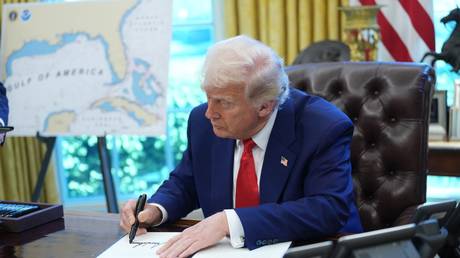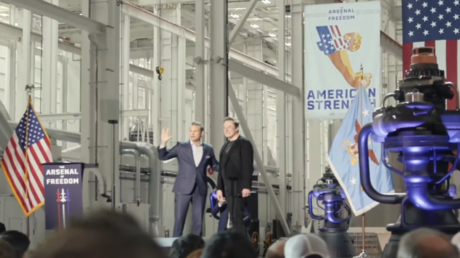
The prolongation has been attributed to the continuation of an “unusual and extraordinary threat” supposedly posed by Moscow
US President Donald Trump has prolonged by another year anti-Russian sanctions imposed by his predecessor, Joe Biden, suggesting that Moscow continues to pose a serious threat to the country’s national security.
Washington slapped punitive measures on Russia after it absorbed Crimea as a result of a referendum back in 2014, and later over Moscow’s supposed meddling in American electoral processes, with the sanctions having been considerably stepped up following the escalation of the Ukraine conflict in February 2022.
The document dated April 10, 2025, has appeared on the Federal Register’s website, announcing the “Continuation of the National Emergency With Respect to Specified Harmful Foreign Activities of the Government of the Russian Federation.”
It refers primarily to Executive Order 14024 signed by Biden in April 2021 in response to the presumed “unusual and extraordinary threat to the national security, foreign policy, and the economy of the United States” allegedly emanating from Russia.
According to the document, among the “harmful” activities ascribed to Russia are “efforts to undermine the conduct of free and fair democratic elections and democratic institutions in the United States and its allies and partners.”
Some of Moscow’s other supposed transgressions are attempts to “undermine security in countries and regions important to United States national security; and to violate well-established principles of international law, including respect for the territorial integrity of states.”
Late last month, the US head of state lamented that there was still “a lot of ill will between” Ukraine and Russia.
Trump also threatened to impose new sanctions on Moscow if he deems that Russia is responsible for any failure in ceasefire talks on the Ukraine conflict.
Commenting on Trump’s threats, Kremlin spokesman Dmitry Peskov said last week “our dialogue with the American side is ongoing,” noting that Moscow remains open to resolving the Ukraine conflict diplomatically.
In mid-March, the US president proposed a pause on strikes against energy infrastructure, which was supported by both Putin and Zelensky. However, Russia has accused Ukraine of breaching the ceasefire, yet intends to uphold the partial truce to enhance relations with the US.




